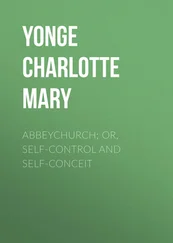Charlotte Yonge - Henrietta's Wish; Or, Domineering
Здесь есть возможность читать онлайн «Charlotte Yonge - Henrietta's Wish; Or, Domineering» — ознакомительный отрывок электронной книги совершенно бесплатно, а после прочтения отрывка купить полную версию. В некоторых случаях можно слушать аудио, скачать через торрент в формате fb2 и присутствует краткое содержание. Издательство: Иностранный паблик, Жанр: foreign_prose, literature_19, Европейская старинная литература, foreign_antique, на английском языке. Описание произведения, (предисловие) а так же отзывы посетителей доступны на портале библиотеки ЛибКат.
- Название:Henrietta's Wish; Or, Domineering
- Автор:
- Издательство:Иностранный паблик
- Жанр:
- Год:неизвестен
- ISBN:нет данных
- Рейтинг книги:5 / 5. Голосов: 1
-
Избранное:Добавить в избранное
- Отзывы:
-
Ваша оценка:
- 100
- 1
- 2
- 3
- 4
- 5
Henrietta's Wish; Or, Domineering: краткое содержание, описание и аннотация
Предлагаем к чтению аннотацию, описание, краткое содержание или предисловие (зависит от того, что написал сам автор книги «Henrietta's Wish; Or, Domineering»). Если вы не нашли необходимую информацию о книге — напишите в комментариях, мы постараемся отыскать её.
Henrietta's Wish; Or, Domineering — читать онлайн ознакомительный отрывок
Ниже представлен текст книги, разбитый по страницам. Система сохранения места последней прочитанной страницы, позволяет с удобством читать онлайн бесплатно книгу «Henrietta's Wish; Or, Domineering», без необходимости каждый раз заново искать на чём Вы остановились. Поставьте закладку, и сможете в любой момент перейти на страницу, на которой закончили чтение.
Интервал:
Закладка:
“O, here is the church,” said Henrietta, in a subdued voice, as they came to the low flint wall that fenced in the slightly rising ground occupied by the churchyard, surrounded by a whole grove of noble elm trees, amongst which could just be seen the small old church, with its large deep porch and curious low tower.
“The door is open,” said Beatrice; “I suppose they are bringing in the holly for Christmas. Should you like to look in, Henrietta?”
“I do not know,” said she, looking at her uncle. “Mamma—”
“I think it might be less trying if she has not to feel for you and herself too,” said Uncle Geoffrey.
“I am sure I should wish it very much,” said Henrietta, and they entered the low, dark, solemn-looking building, the massive stone columns and low-browed arches of which had in them something peculiarly awful and impressive to Henrietta’s present state of mind. Uncle Geoffrey led her on into the chancel, where, among numerous mural tablets recording the names of different members of the Langford family, was one chiefly noticeable for the superior taste of its Gothic canopy, and which bore the name of Frederick Henry Langford, with the date of his death, and his age, only twenty-six. One of the large flat stones below also had the initials F.H.L., and the date of the year. Henrietta stood and looked in deep silence, Beatrice watching her earnestly and kindly, and her uncle’s thoughts almost as much as hers, on what might have been. Her father had been so near him in age, so constantly his companion, so entirely one in mind and temper, that he had been far more to him than his elder brother, and his death had been the one great sorrow of Uncle Geoffrey’s life.
The first sound which broke the stillness was the opening of the door, as the old clerk’s wife entered with a huge basket of holly, and dragging a mighty branch behind her. Uncle Geoffrey nodded in reply to her courtesy, and gave his daughter a glance which sent her to the other end of the church to assist in the Christmas decorations.
Henrietta turned her liquid eyes upon her uncle. “This is coming very near him!” said she in a low voice. “Uncle; I wish I might be quite sure that he knows me.”
“Do not wish too much for certainty which has not been granted to us,” said Uncle Geoffrey. “Think rather of ‘I shall go to him, but he shall not return to me.’”
“But, uncle, you would not have me not believe that he is near to me and knows how—how I would have loved him, and how I do love him,” she added, while the tears rose to her eyes.
“It may be so, my dear, and it is a thought which is not only most comforting, but good for us, as bringing us closer to the unseen world: but it has not been positively revealed, and it seems to me better to dwell on that time when the meeting with him is so far certain that it depends but on ourselves.”
To many persons, Uncle Geoffrey would scarce have spoken in this way; but he was aware of a certain tendency in Henrietta’s mind to merge the reverence and respect she owed to her parents, in a dreamy unpractical feeling for the father whom she had never known, whose voice she had never heard, and from whom she had not one precept to obey; while she lost sight of that honour and duty which was daily called for towards her mother. It was in honour, not in love, that Henrietta was wanting, and with how many daughters is it not the same? It was therefore, that though even to himself it seemed harsh, and cost him a pang, Mr. Geoffrey Langford resolved that his niece’s first visit to her father’s grave should not be spent in fruitless dreams of him or of his presence, alluring because involving neither self-reproach nor resolution; but in thoughts which might lead to action, to humility, and to the yielding up of self-will.
Henrietta looked very thoughtful. “That time is so far away!” said she.
“How do you know that?” said her uncle in the deep low tone that brought the full perception that “it is nigh, even at the doors.”
She gave a sort of shuddering sigh, the reality being doubly brought home to her, by the remembrance of the suddenness of her father’s summons.
“It is awful,” she said. “I cannot bear to think of it.”
“Henrietta,” said her uncle solemnly, “guard yourself from being so satisfied with a dream of the present as to lose sight of the real, most real future.” He paused, and as she did not speak, went on: “The present, which is the means of attaining to that future, is one not of visions and thoughts, but of deeds.”
Again Henrietta sighed, but presently she said, “But, uncle, that would bring us back to the world of sense. Are we not to pray that we may in heart and mind ascend?”
“Yes, but to dwell with Whom? Not to stop short with objects once of earthly affection.”
“Then would you not have me think of him at all?” said she, almost reproachfully.
“I would have you take care, Henrietta, lest the thought should absorb the love and trust due to your true and Heavenly Father, and at the same time you forget what on earth is owed to your mother. Do you think that is what your father would desire?”
“You mean,” she said sadly, “that while I do not think enough of God, and while I love my own way so well, I have no right to dwell on the thought I love best, the thought that he is near.”
“Take it rather as a caution than as blame,” said Uncle Geoffrey. A long silence ensued, during which Henrietta thought deeply on the new idea opened to her. Her vision, for it could not be called her memory of her father, had in fact been too highly enshrined in her mind, too much worshipped, she had deemed this devotion a virtue, and fostered as it was by the solitude of her life, and the temper of her mother’s mind, the truth was as Uncle Geoffrey had hinted, and she began to perceive it, but still it was most unwillingly, for the thought was cherished so as to be almost part of herself. Uncle Geoffrey’s manner was so kind that she could not be vexed with him, but she was disappointed, for she had hoped for a narration of some part of her father’s history, and for the indulgence of that soft sorrow which has in it little pain. Instead of this she was bidden to quit her beloved world, to soar above it, or to seek for a duty which she had rather not believe that she had neglected, though—no, she did not like to look deeper.
Mr. Geoffrey Langford gave her time for thought, though of what nature it might be, he could not guess, and then said, “One thing more before we leave this place. Whether Fred cheerfully obeys the fifth commandment in its full extent, may often, as I believe, depend on your influence. Will you try to exert it in the right way?”
“You mean when he wishes to do things like other boys of his age,” said Henrietta.
“Yes. Think yourself, and lead him to think, that obedience is better than what he fancies manliness. Teach him to give up pleasure for the sake of obedience, and you will do your work as a sister and daughter.”
While Uncle Geoffrey was speaking, Beatrice’s operations with the holly had brought her a good deal nearer to them, and at the same time the church door opened, and a gentleman entered, whom the first glance showed Henrietta to be Mr. Franklin, the clergyman of the parish, of whom she had heard so much. He advanced on seeing Beatrice with the holly in her hand. “Miss Langford! This is just what I was wishing.”
“I was just helping old Martha,” said Beatrice; “we came in to show my cousin the church, and—”
By this time the others had advanced.
“How well the church looks this dark afternoon,” said Uncle Geoffrey, speaking in a low tone, “it is quite the moment to choose for seeing it for the first time. But you are very early in beginning your adornments.”
Читать дальшеИнтервал:
Закладка:
Похожие книги на «Henrietta's Wish; Or, Domineering»
Представляем Вашему вниманию похожие книги на «Henrietta's Wish; Or, Domineering» списком для выбора. Мы отобрали схожую по названию и смыслу литературу в надежде предоставить читателям больше вариантов отыскать новые, интересные, ещё непрочитанные произведения.
Обсуждение, отзывы о книге «Henrietta's Wish; Or, Domineering» и просто собственные мнения читателей. Оставьте ваши комментарии, напишите, что Вы думаете о произведении, его смысле или главных героях. Укажите что конкретно понравилось, а что нет, и почему Вы так считаете.












